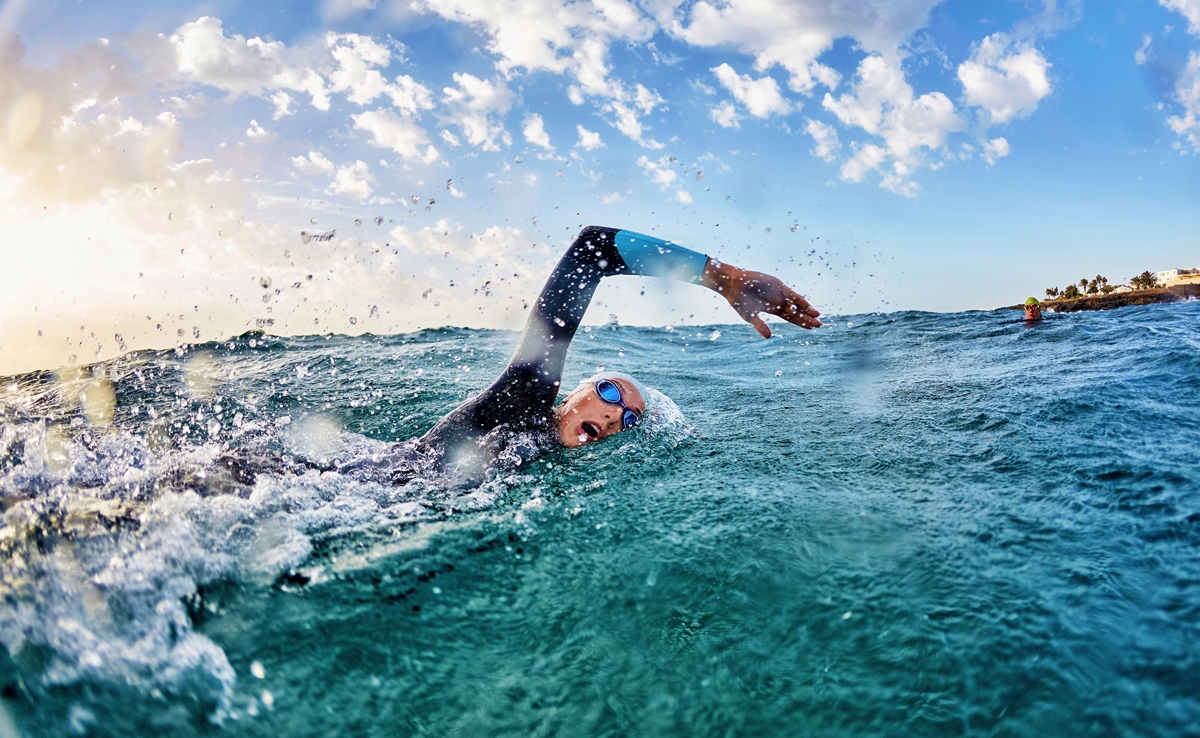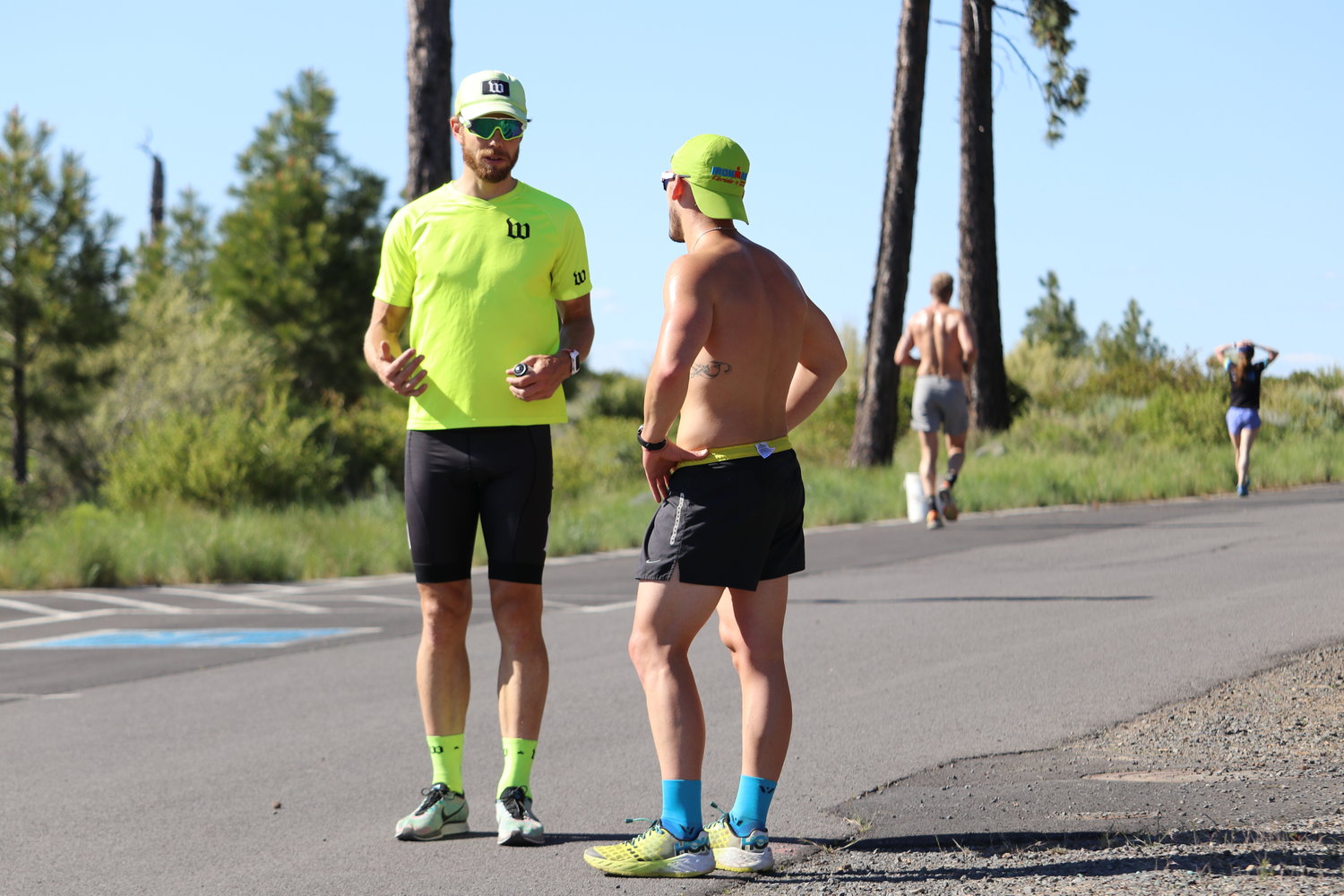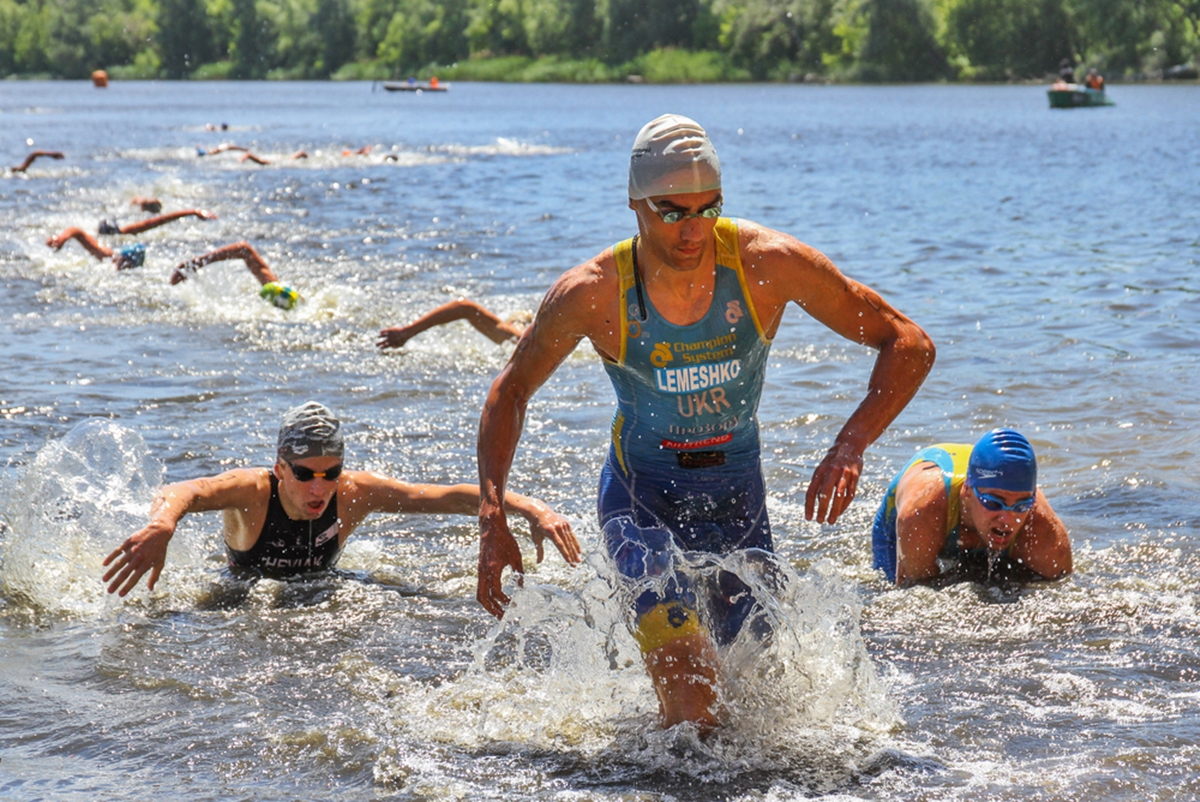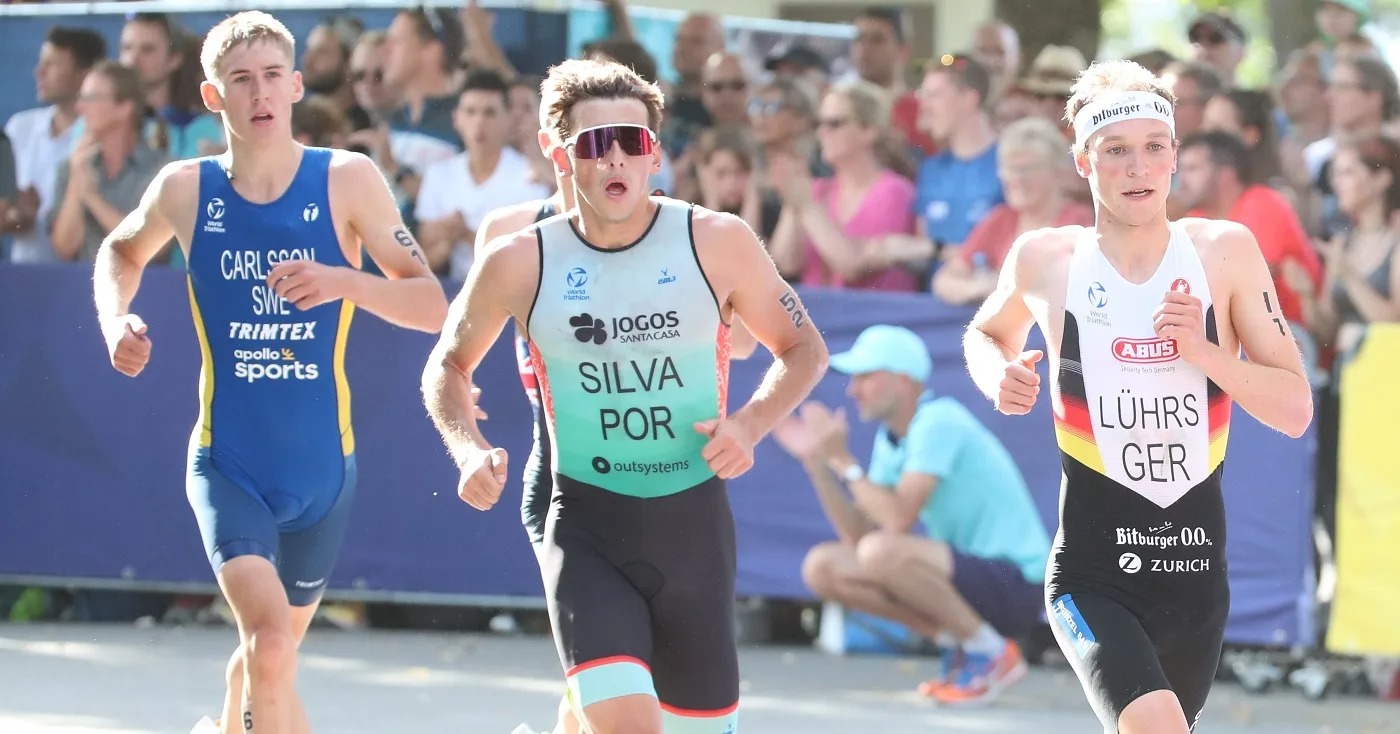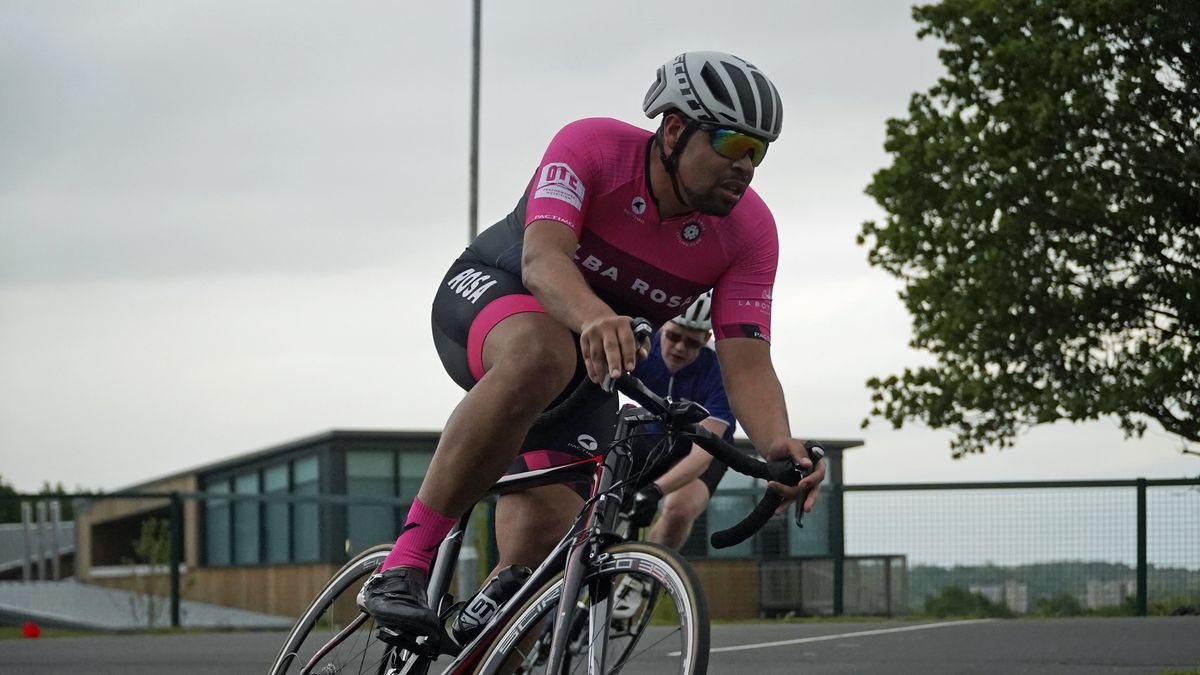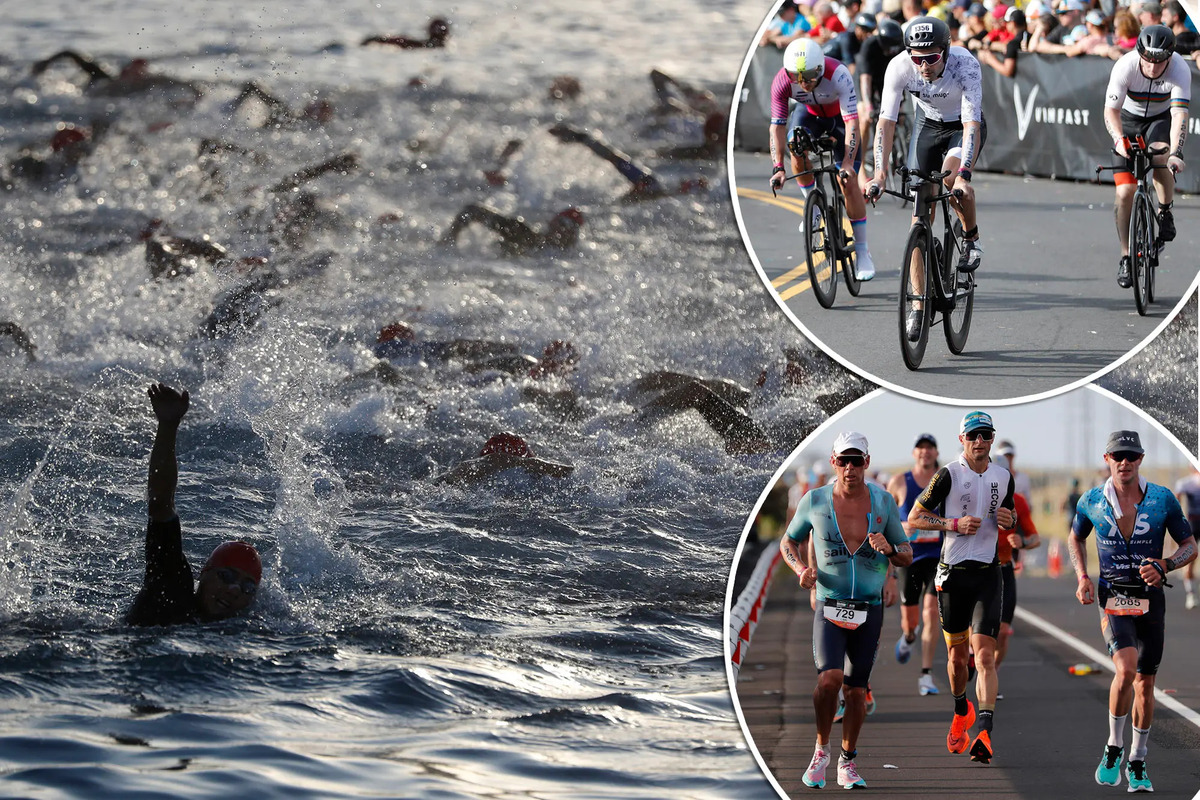

Featured
Why Do A Triathlon
Modified: January 2, 2024
Discover the Featured Triathlon Training Tips and Dive Deep into Why Do A Triathlon. Uncover the Benefits, Challenges, and Motivations of this Ultimate Endurance Challenge.
Introduction
Triathlons have become increasingly popular in recent years, attracting a diverse range of participants from amateur fitness enthusiasts to elite athletes. This multi-disciplinary endurance sport combines swimming, cycling, and running into a single event that tests participants’ physical and mental strength. But why do people willingly take on this grueling challenge? The answer lies in the numerous benefits that come from participating in a triathlon.
Triathlons are not just about crossing the finish line; they are a transformative experience that empowers individuals to push their limits and achieve personal growth. The journey from training to completing a triathlon is an incredible feat that offers numerous rewards beyond physical fitness.
In this article, we will explore the many reasons why individuals choose to participate in triathlons, from the physical fitness benefits to the social and networking opportunities it provides. Whether you’re considering entering your first triathlon or simply curious about the allure of this demanding sport, read on to discover why people choose to take on the challenge of a triathlon.
Physical Fitness Benefits
One of the primary reasons individuals choose to participate in triathlons is the significant physical fitness benefits they offer. With three different disciplines – swimming, cycling, and running – participants engage in a comprehensive full-body workout that targets multiple muscle groups.
Swimming: The swimming portion of a triathlon works wonders for cardiovascular health. This low-impact exercise improves lung capacity, strengthens the heart, and enhances overall endurance. The resistance of the water also helps to build upper body strength and tone the muscles.
Cycling: Cycling is an excellent way to build lower body strength and improve cardiovascular fitness. The repetitive pedaling motion engages the quadriceps, hamstrings, and glutes, while also providing a great aerobic workout. Additionally, cycling is low impact, making it ideal for individuals with joint issues.
Running: The running component of a triathlon is a high-impact activity that strengthens the bones, muscles, and connective tissues of the lower body. Regular running not only improves cardiovascular endurance but also helps burn calories, maintain a healthy weight, and improve overall stamina.
By engaging in all three disciplines of a triathlon, participants develop well-rounded fitness and achieve a higher level of overall endurance. The combination of swimming, cycling, and running challenges the body in different ways, helping to improve strength, flexibility, and aerobic capacity.
Furthermore, training for a triathlon requires participants to establish a consistent exercise routine that incorporates cross-training and interval workouts. This variety in training methods helps prevent overuse injuries, and the progressive nature of the training allows participants to continually improve their fitness levels and performance.
Overall, participating in a triathlon provides individuals with an unparalleled opportunity to improve their physical fitness and achieve a well-rounded level of athleticism. The multi-disciplinary nature of the sport ensures that participants target various muscle groups, improve cardiovascular endurance, and develop overall strength and stamina.
Mental Strength and Endurance
While triathlons are undoubtedly a test of physical endurance, they also require significant mental strength and resilience. Participants must conquer mental barriers and push themselves beyond their perceived limits to achieve their goals.
Embarking on the journey of training for a triathlon forces individuals to develop mental fortitude and discipline. The rigorous training regimen, including early morning workouts, long training sessions, and pushing through fatigue, builds mental resilience. This mental strength not only helps individuals overcome physical challenges but also translates into various aspects of their lives.
The mental strength gained from participating in a triathlon can be applied to everyday activities and challenges. Triathletes often find themselves better equipped to handle stress, manage time efficiently, and stay focused on their goals. The discipline and determination necessary to complete a triathlon transfer to work, relationships, and personal pursuits.
Endurance events like a triathlon require participants to have the mental endurance to keep pushing forward, even when faced with physical fatigue and discomfort. The ability to maintain focus and motivation during the swim, bike, and run segments is essential to reaching the finish line.
In addition, triathlons often present unforeseen challenges, such as inclement weather or equipment malfunctions. The ability to adapt to these unexpected situations and make quick decisions is crucial. Triathletes learn to problem-solve on the go, developing mental flexibility and resilience.
Furthermore, the competitive aspect of triathlons pushes participants to set goals, strive for continuous improvement, and elevate their performance. This drive not only enhances their mental strength but also fosters a strong sense of determination and perseverance.
Through the mental challenges encountered during training and the race itself, participants develop a heightened self-awareness and self-confidence. They learn to push through limitations, embrace discomfort, and believe in their abilities. These qualities extend far beyond the triathlon course, empowering individuals to tackle life’s obstacles with a positive mindset.
In summary, participating in a triathlon builds mental strength and endurance, enabling individuals to overcome challenges, develop discipline, and cultivate a resilient mindset. The mental growth experienced through training and completing a triathlon positively impacts many areas of life, leading to a greater sense of self-confidence and a can-do attitude.
Variety and Challenge
Triathlons offer a unique combination of variety and challenge that keeps participants engaged and motivated throughout their training and race day. The dynamic nature of the sport provides a refreshing change from monotonous exercise routines and allows individuals to constantly challenge themselves.
Firstly, the three disciplines of swimming, cycling, and running offer a diverse array of physical activities. This variety prevents boredom and provides a well-rounded workout that targets different muscle groups. The constantly changing movements and environments make triathlons exciting and captivating.
Additionally, the challenge of progressing in each discipline and improving overall performance adds an element of excitement to training. Triathletes constantly strive to swim faster, cycle longer, and run harder, setting new personal records and surpassing their own expectations.
Training for a triathlon requires individuals to develop a comprehensive training plan that encompasses different types of workouts. This variety not only helps prevent training plateaus but also keeps participants mentally and physically engaged. From long bike rides to interval runs to open water swims, each training session presents a unique challenge.
On race day, the variety of terrains and course layouts adds an extra layer of excitement and unpredictability. Triathlon courses can take participants through scenic countryside, challenging hills, and even open water swim segments in lakes or oceans. The ever-changing landscapes and conditions keep participants on their toes and enhance the overall experience.
Moreover, the progression from shorter to longer distances within the sport offers a continuous challenge. Many individuals start with shorter sprint triathlons and gradually work their way up to longer distances, such as Olympic, half Ironman, and even Ironman events. Each step up in distance presents a new level of physical and mental demand, making the journey even more rewarding.
The variety and challenge of triathlons provide a constant source of motivation and drive for participants. The combination of different disciplines, training methods, and race experiences keeps individuals engaged and focused on their goals. It allows them to continuously push their limits, seek new challenges, and experience personal growth.
In summary, triathlons offer a unique blend of variety and challenge that keeps participants motivated and engaged. The dynamic nature of the sport and the continuous progression from shorter to longer distances provide a constant sense of excitement and growth. Triathlons offer participants the opportunity to break away from mundane exercise routines and embrace a rewarding and fulfilling journey.
Sense of Accomplishment
Completing a triathlon is an incredible achievement that brings a profound sense of accomplishment. The combination of physical and mental challenges, the dedication required for training, and the journey from start to finish create an experience that is truly transformative.
Triathlons push participants to their limits, requiring them to overcome obstacles and push through fatigue. Crossing the finish line after conquering the swim, bike, and run segments is an exhilarating moment that leaves participants with an overwhelming sense of pride and accomplishment.
Training for a triathlon demands commitment, discipline, and sacrifice. It involves months of hard work, early mornings, and countless hours of training. The process of setting goals, working towards them, and finally achieving them instills a deep sense of satisfaction and fulfillment.
Furthermore, participating in a triathlon forces individuals to step out of their comfort zones and challenge themselves in ways they may have never thought possible. It pushes them to confront their fears, overcome self-doubt, and prove their own capabilities. This growth and personal development contribute to an increased sense of self-worth and accomplishment.
Whether it’s completing a sprint triathlon or conquering an Ironman event, the feeling of triumph that washes over participants is unmatched. The knowledge that they have accomplished something extraordinary and surpassed their own expectations creates a lasting sense of pride and fulfillment.
Moreover, the sense of accomplishment gained from completing a triathlon extends beyond the individual experience. It serves as an inspiration to others, demonstrating the power of dedication and perseverance. Participants become role models for friends, family, and even strangers who are inspired to embark on their own journeys of self-discovery and achievement.
The memories and emotions associated with finishing a triathlon remain ingrained in the participants’ minds forever. The journey, the intense training, and the sense of accomplishment create a lasting impression that will serve as a reminder of what can be achieved through determination and hard work.
In summary, the sense of accomplishment derived from completing a triathlon is unparalleled. The culmination of physical and mental challenges, the dedication required for training, and the personal growth experienced throughout the journey contribute to a profound feeling of pride and fulfillment. It serves as a reminder of the power of dedication, resilience, and the ability to overcome obstacles.
Team Building and Camaraderie
While triathlons are largely an individual sport, they also provide ample opportunities for team building and fostering camaraderie among participants. The shared experience of training and racing alongside fellow triathletes creates a sense of community and support that enhances the overall journey.
Training for a triathlon often involves joining local training groups or clubs where individuals can connect with like-minded people. These groups provide a supportive environment where participants can learn from each other, share experiences, and push each other to reach their full potential. The camaraderie built within these communities fosters a sense of belonging and motivates individuals to stay committed to their training.
Furthermore, participating in triathlon events brings together a diverse group of individuals with different backgrounds, ages, and abilities. The shared experience of preparing for and competing in a triathlon creates a unique bond among participants. Whether it’s cheering each other on during the race or offering words of encouragement during challenging moments, the sense of camaraderie is palpable.
During a triathlon race, participants often experience moments of physical and mental fatigue. In these moments, the support and encouragement from fellow triathletes can make a significant difference. The sense of unity and shared perseverance helps individuals push through their own limitations and keeps them motivated to reach the finish line.
Moreover, participating in relay-style triathlons allows individuals to experience the teamwork aspect of the sport. In a relay, each team member completes one of the disciplines, and the overall result is a collective effort. This collaborative approach encourages teamwork, cooperation, and communication among team members, fostering a sense of togetherness and shared accomplishment.
Outside of the training and racing environment, triathletes often have the opportunity to participate in social events and gatherings. These events provide a platform for building deeper connections and friendships with individuals who share a passion for triathlons. The sense of community goes beyond the sport and extends to various aspects of life.
Triathlons also offer a unique opportunity for families and friends to come together and support their loved ones. Spectators line the racecourse, cheering on athletes and providing an additional boost of motivation. The encouragement from the sidelines creates an uplifting atmosphere and strengthens the bond between participants and their support systems.
In summary, although triathlons are predominantly an individual sport, they foster team building and camaraderie among participants. The shared experience of training, racing, and supporting one another creates a strong sense of community. Whether it’s through training groups, collective encouragement during races, or social events, triathlons bring people together, motivating and inspiring each other to achieve their goals.
Opportunity for Personal Growth
Participating in a triathlon presents a unique opportunity for personal growth and self-discovery. Through the physical and mental challenges, individuals are pushed out of their comfort zones and learn valuable lessons that extend far beyond the racecourse.
One of the most significant aspects of personal growth in triathlons is the development of discipline and goal-setting skills. The process of setting specific goals, creating a structured training plan, and consistently working towards those goals teaches individuals the importance of focus, dedication, and self-motivation. These skills are transferable to other areas of life, such as work, relationships, and personal pursuits.
Triathlon training also requires individuals to manage their time effectively. Balancing multiple disciplines and fitting in training sessions alongside other responsibilities teaches participants the art of prioritization and time management. This skill is invaluable in maintaining a healthy work-life balance and pursuing personal aspirations outside of the sport.
Furthermore, triathlons often present participants with moments of adversity and setbacks. It is during these challenging times that individuals truly discover their resilience and the ability to bounce back stronger. Overcoming obstacles during training or facing difficulties on race day builds mental toughness and instills a sense of confidence that can be carried forward in all areas of life.
Triathlons also provide a platform for embracing failure as a stepping stone to success. Not every race will go as planned, and setbacks are inevitable. However, these experiences offer valuable opportunities for learning, growth, and self-reflection. Triathletes learn to adapt, analyze their performance, and make necessary adjustments to achieve better outcomes in future races and endeavors.
Moreover, participating in a triathlon challenges individuals to confront their fears and step outside their comfort zones. Open water swimming, cycling on hilly terrains, or running longer distances can be daunting for some. By pushing through these challenges, individuals gain a sense of empowerment and expand their capabilities, showing themselves what they are truly capable of achieving.
Triathlons also provide a platform for personal introspection and self-discovery. The solitude of training sessions and the introspective moments during long endurance efforts can lead to deep self-reflection. Participants learn about their strengths, weaknesses, and resilience, gaining a deeper understanding of themselves and their potential.
In summary, participating in a triathlon offers individuals an incredible opportunity for personal growth. The challenges faced, the skills developed, and the lessons learned extend far beyond the racecourse. The discipline, goal-setting, resilience, and self-discovery gained through triathlon training contribute to personal growth and empower individuals to overcome obstacles and achieve success in all areas of life.
Social and Networking Opportunities
Triathlons not only provide physical and personal growth opportunities but also offer an excellent platform for socializing and networking. The shared passion for the sport brings together a diverse community of individuals, creating a supportive network and fostering meaningful connections.
Participating in triathlons opens the door to new friendships and social interactions. Training groups, clubs, and online communities provide a welcoming environment where individuals can connect with like-minded people who share a passion for triathlons. Through group workouts, training sessions, and social events, participants have the opportunity to meet and build relationships with fellow triathletes.
Aside from the camaraderie among athletes, triathlon events themselves become social hubs. Race expos, pre-race pasta parties, and post-race celebrations provide the perfect setting to connect with other participants, share stories, and celebrate each other’s accomplishments. The sense of community and shared experiences create lasting friendships and support networks.
Furthermore, participating in triathlons offers individuals the chance to meet and network with professionals in various industries. Triathlons attract participants from diverse backgrounds, including doctors, lawyers, business owners, and executives. The shared experience of training and racing serves as a natural icebreaker and facilitates networking opportunities.
Triathlon races often have sponsors and exhibitors who showcase their products and services at race expos. These expos provide an opportunity to interact with industry professionals and learn about the latest advancements in equipment, technology, and nutrition. Participants can gain valuable insights, gather information, and make connections that can enhance their athletic performance and overall well-being.
For corporate teams and organizations, triathlon participation can be an excellent team building and networking opportunity. Companies often sponsor their employees to participate in triathlons as a way to promote a healthy lifestyle and encourage team bonding. Training together, supporting each other during races, and celebrating achievements strengthens the team dynamics and fosters a sense of camaraderie beyond the workplace.
Moreover, triathlons provide a unique platform for raising awareness about charitable causes. Many races partner with non-profit organizations, and participants have the opportunity to raise funds and promote social causes while participating in the sport they love. This powerful combination of fitness, fundraising, and social impact brings participants together for a greater purpose and creates a strong sense of community.
In summary, triathlons offer abundant social and networking opportunities for participants. The shared passion for the sport creates a strong community of like-minded individuals who support and motivate each other. Triathlons serve as a platform for forming new friendships, connecting with industry professionals, supporting charitable causes, and fostering team building. The social and networking benefits of participating in triathlons extend far beyond the racecourse, creating lasting connections and opportunities in both personal and professional spheres.
Conclusion
Participating in a triathlon is a transformative experience that offers a multitude of benefits. From the physical fitness advantages to the mental strength and endurance developed, triathlons push individuals to their limits and empower them to achieve personal growth. The variety and challenge of training for and participating in a triathlon keep participants engaged and motivated, while the sense of accomplishment gained from crossing the finish line is unparalleled.
Triathlons also foster team building and camaraderie, creating a supportive community that extends beyond the racecourse. The social and networking opportunities that come with participating in triathlons allow individuals to connect with like-minded people and form lasting friendships. Additionally, the exposure to professionals from various industries provides valuable networking opportunities for personal and professional growth.
The opportunity for personal growth through triathlons is immense. The discipline, resilience, and goal-setting skills developed during training translate into other areas of life, fueling success in work, relationships, and personal pursuits. Triathlons also provide a space for self-reflection and self-discovery, allowing individuals to uncover their true capabilities and expand their horizons.
In summary, triathlons offer a holistic experience that encompasses physical, mental, and social aspects. By participating in triathlons, individuals challenge themselves, push their limits, and grow both as athletes and as individuals. The journey from training to crossing the finish line is filled with obstacles, triumphs, and personal transformations that leave participants with a lasting sense of fulfillment and accomplishment.

